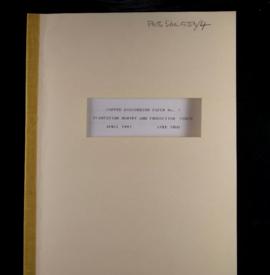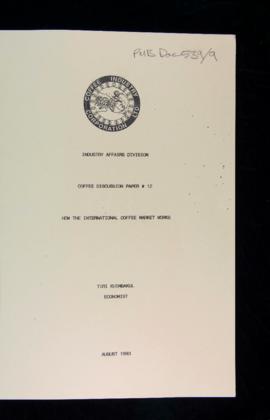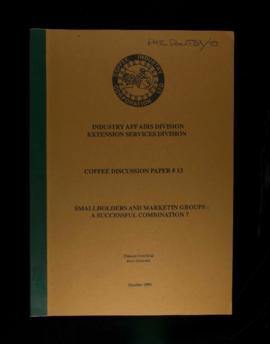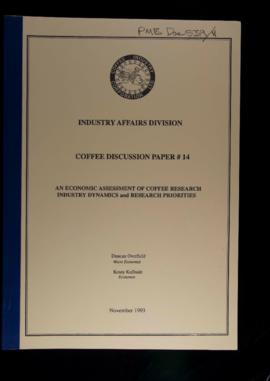- AU PMB DOC 539-04
- Pièce
Fait partie de Papua New Guinea Coffee Industry Corporation Publications
The Coffee Industry Act of 1976 mandated the lodging and completion of a plantation survey form. In 1991, two sets of surveys the compulsory (1) Plantation survey form and the optional (2) cost of survey form were sent out to the existing plantations and block developments identified and listed by the Coffee Board Inspectors in 1988 to update their listing database as well as and cost of production in the plantation sector. Despite receiving poor response rate due to several contributing factors,
this paper further discusses plantation surveys results and included different tables showing plantation survey results in 1989 and 1990 as well as plantation costs of production.
PNG Coffee Industry Board









